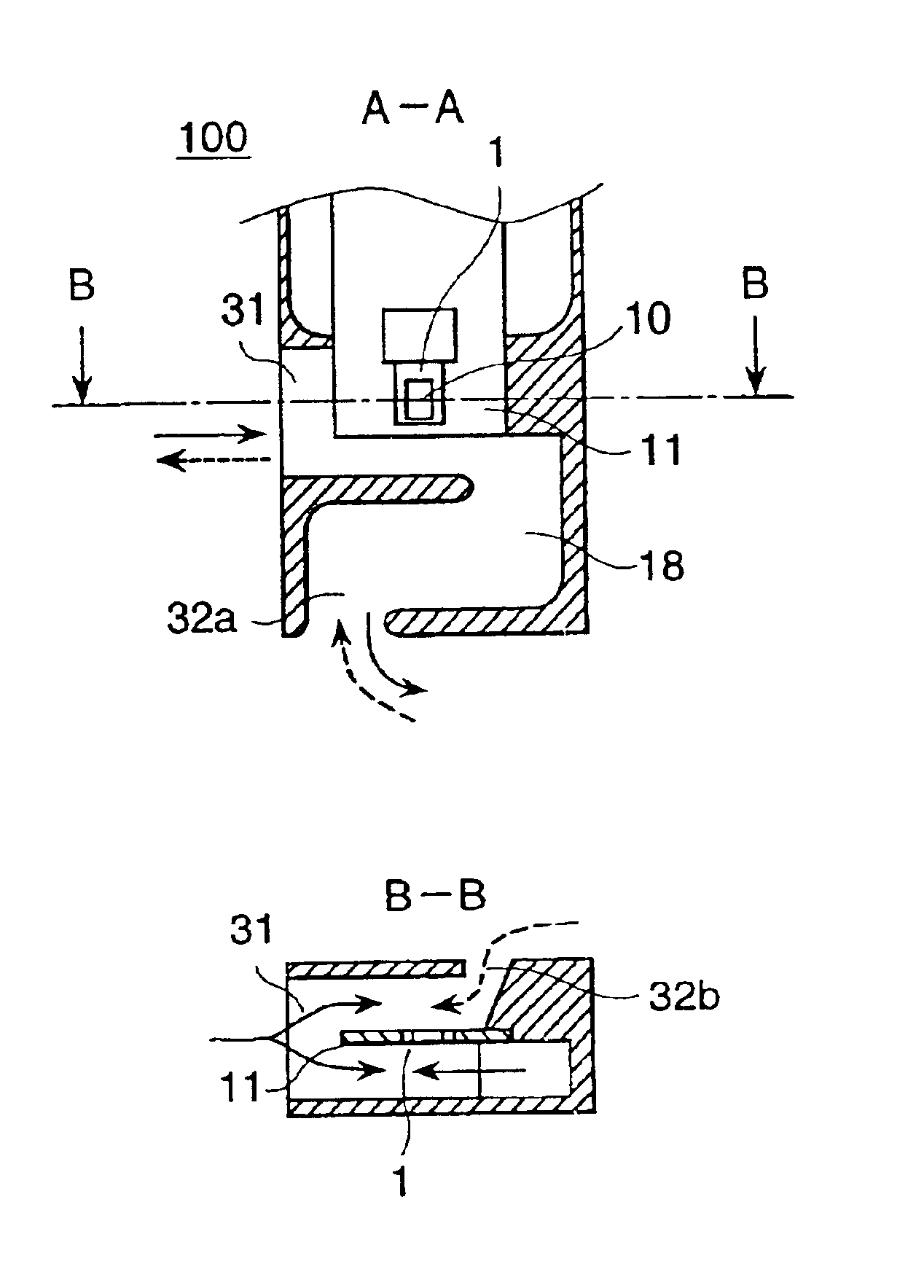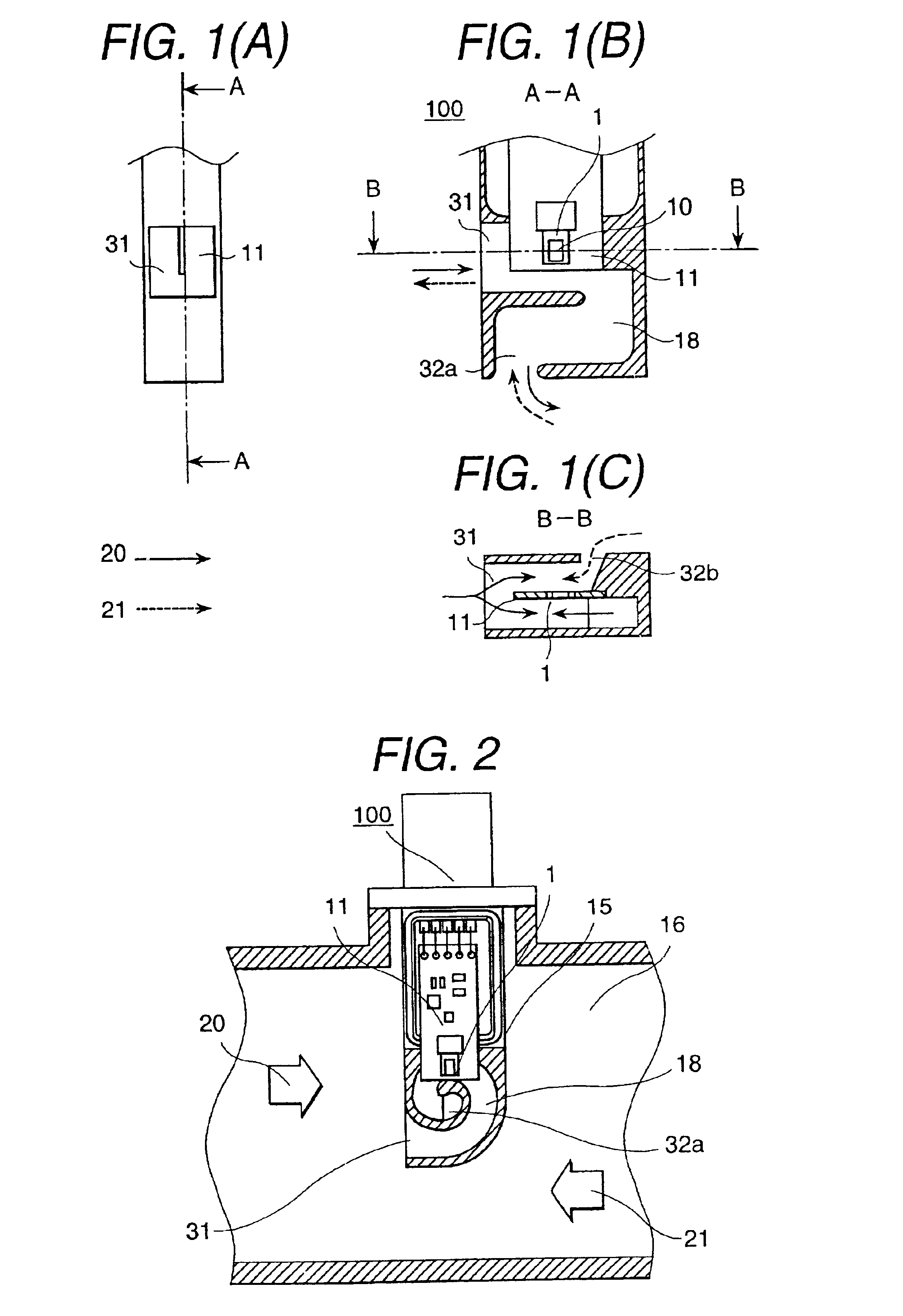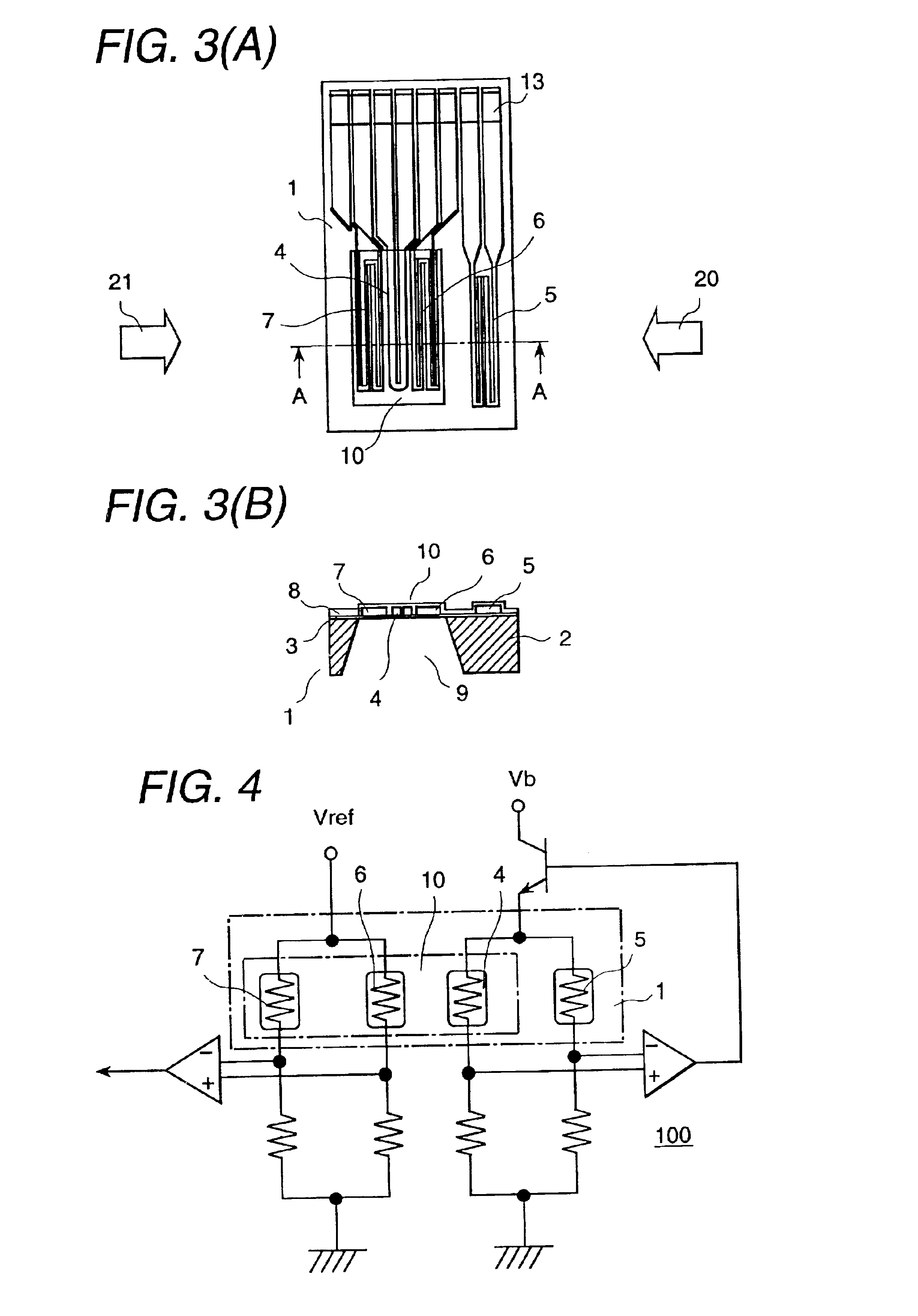Thermal-type flow meter with bypass passage
a flow meter and bypass passage technology, applied in the field of flow measurement sensors, can solve the problems of increasing pulsation becomes very complicated, and the amount of reverse flow tends to increase, so as to reduce the measurement error, increase the reliability, and ensure the effect of reliability
- Summary
- Abstract
- Description
- Claims
- Application Information
AI Technical Summary
Benefits of technology
Problems solved by technology
Method used
Image
Examples
first embodiment
A flow measurement sensor 100 of a first embodiment comprises a flow measurement element 1 which has a heater resistance pattern, i.e. thin film structure 10, on one side of a plate-shaped support member 11, and a bypass passage 18 in which the flow measurement element 1 is disposed. The flow measurement element 1 is fixed to a concaved portion (see FIG. 11) provided in one side of the support member 11 so that the surface becomes slightly, for example, approximately 10 μm lower than the flat surface of the support member 11 by epoxy or silicon adhesive. As understood from the top view, the support member 11 is located near the center of the bypass passage 18 and divides the bypass passage 18 into a first passage through which fluid flows along the support member surface to which the flow measurement element is not mounted, and a second passage through which fluid flows along the surface of the flow measurement element. The bypass passage 18 comprises an inlet 31, a first outlet 32a...
third embodiment
However, according to the present invention, it is possible that reverse flow is easily guided to the back side of the support member 11 without increasing the reverse flow on the surface of the flow measurement element, so that air flow on the surface of the flow measurement element 1 can be increased by being dragged by the reverse flow. This technology makes highly accurate measurement possible in the entire area regardless of the pulsation amplitude being small or large and at any engine speed.
Next, FIG. 8 shows sectional views and a top view of a flow measurement sensor which is a fourth embodiment of the present invention. The fourth embodiment is an altered example of the third embodiment. In this embodiment, a protrusion 33 which extends in the direction perpendicular to the axial direction of the main passage 16 is provided on the upstream side of the second outlet 32b so as to be easily applied dynamic pressure of reverse flow 21, thereby the reverse flow 21 is easily guid...
fifth embodiment
Therefore, in order to provide a flow measurement sensor 100 which has long-lasting reliability, it is necessary to structure the sensor such that air reaches the surface of the flow measurement element 1 but dust and moisture are kept away. As a means to solve this problem, a bypass passage 18, shown in FIG. 9, which is the present invention is effective. In this embodiment, the radius of the bypass passage 18 gradually becomes small in the direction of forward flow in the bypass passage. The flow measurement element is disposed inside in the radial direction from the outer-wall surface of the bypass passage. Further, a first outlet 32a faces the direction perpendicular to the axial direction of the main passage 16. A first outlet 32a opens in the direction perpendicular to the axial direction of the main passage 16. Further, a second outlet 32b opens in the axial direction of the main passage 16, away from the first outlet 32a.
The bypass passage 18 of this embodiment generates a ...
PUM
 Login to View More
Login to View More Abstract
Description
Claims
Application Information
 Login to View More
Login to View More - R&D
- Intellectual Property
- Life Sciences
- Materials
- Tech Scout
- Unparalleled Data Quality
- Higher Quality Content
- 60% Fewer Hallucinations
Browse by: Latest US Patents, China's latest patents, Technical Efficacy Thesaurus, Application Domain, Technology Topic, Popular Technical Reports.
© 2025 PatSnap. All rights reserved.Legal|Privacy policy|Modern Slavery Act Transparency Statement|Sitemap|About US| Contact US: help@patsnap.com



